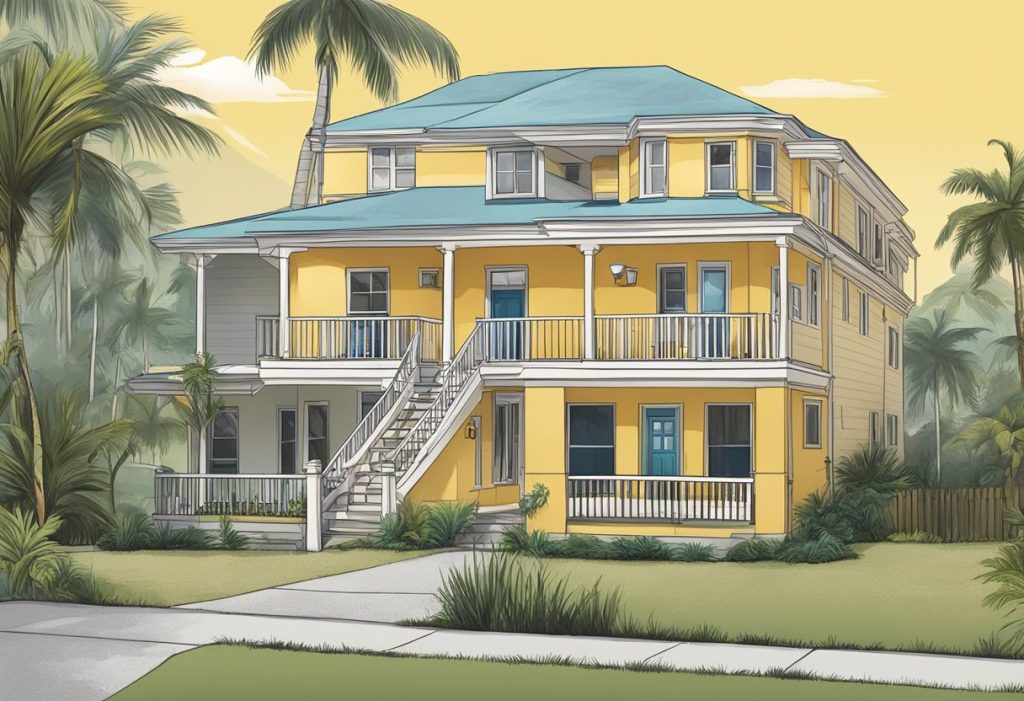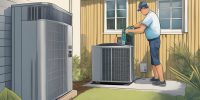Last Updated on March 18, 2024 by Kelvin Nielsen
As a landlord in Florida, it’s important to understand the health codes and housing codes that must be followed when renting out a property.
Florida law has specific requirements for rental properties to ensure the health and safety of tenants. These codes cover everything from the cleanliness of the property to the availability of hot water and working smoke detectors.
One of the most important health codes for rental properties in Florida is the requirement for proper sanitation. Landlords must ensure that the property is clean and free of pests, mold, and other hazards that could pose a health risk to tenants.
Additionally, landlords must provide working plumbing and hot water, as well as a safe and functional electrical system. These codes are in place to protect tenants and ensure that they have a safe and healthy living environment.
Related Posts:
- Florida Lease Renewal Laws: What You Need to Know
- How to Sue Your Landlord in Florida: A Guide for Tenants
- Can a Tenant Withhold Rent for Repairs in Florida?
Housing Standards and Landlord Responsibilities
As a landlord in Florida, you have certain responsibilities to maintain your rental property up to certain standards. These standards are set forth by the Florida Department of Health and must be followed to ensure the safety and health of your tenants.
Structural Requirements
Your rental property must meet certain structural requirements to ensure the safety of your tenants.
This includes ensuring that the roof, floors, porches, exterior walls, foundations, and other structural components are in good condition and free from defects that could pose a hazard to your tenants.
Utility Systems
Your rental property must also have functioning plumbing, electrical, heat, running water, and hot water systems. Smoke detectors must be installed in each bedroom and hallway, and locks must be installed on all exterior doors.
Safety and Health Provisions
You must ensure that your rental property is free from lead, mold, and other indoor air quality issues. You must also provide adequate security measures to protect your tenants from harm, including installing deadbolts on all exterior doors and windows.
Pest Control and Sanitation
Your rental property must be free from pests, including ants, roaches, rats, mice, bedbugs, and termites. You must also ensure that garbage is properly removed and that your rental property is kept clean and sanitary.
Related Posts:
- Florida Air Conditioning Laws
- Landlord Rights in Florida
- How Long Does a Landlord Have to Fix Something in Florida?
Tenant Rights and Obligations
As a tenant in Florida, you have certain rights and obligations that you should be aware of.
Lease and Documentation
When renting a property, you should always have a written lease or rental agreement. This document should outline the terms of your tenancy, including the rent amount, lease term, and any rules or restrictions.
You have the right to receive a copy of this document and to ask questions if there is anything you do not understand.
Rent and Security Deposits
You are obligated to pay rent on time and in full each month. Your landlord is required to provide you with a receipt or other documentation of payment.
If you are required to pay a security deposit, it must be returned to you within 15 days of move-out, minus any deductions for damages or unpaid rent.
Reporting and Remedies
If there are any issues with the dwelling unit that affect your health or safety, you have the right to report these to your landlord in writing. If the landlord fails to address the issue within a reasonable amount of time, you may be able to withhold rent or terminate your lease.
Additionally, if your landlord violates any of your rights as a tenant, you may be able to take legal action. Including, filing a complaint with the court or seeking the advice of an attorney.
Related Posts:
- Florida Landlord Carpet Replacement Law
- Can a Landlord Enter Without Permission in Florida?
- Florida Rental Laws Month-to-Month
Frequently Asked Questions

What are the responsibilities of Florida landlords regarding health and safety codes for rental properties?
As a Florida landlord, you are responsible for ensuring that your rental property meets all applicable health and safety codes. This includes providing a safe and habitable living environment for your tenants, maintaining the property in good condition, and addressing any issues that may arise in a timely manner.
How can tenants in Florida report housing code violations?
If you are a tenant in Florida and believe that your rental property is not in compliance with health and safety codes, you can report the issue to your local code enforcement agency.
You may also contact your landlord directly and request that they address the issue.
What constitutes unsafe living conditions under Florida rental laws?
Unsafe living conditions can include issues such as mold, pest infestations, faulty electrical systems, and structural damage.
Florida rental laws require landlords to maintain their properties in a safe and habitable condition, and tenants have the right to request repairs to address any unsafe living conditions.
What repairs are Florida tenants legally responsible for in rental properties?
Under Florida rental laws, tenants are generally responsible for minor repairs and maintenance tasks, such as replacing light bulbs and keeping the property clean.
However, landlords are responsible for addressing any repairs related to health and safety issues, such as fixing a leaky roof or repairing a broken heater.
How do month-to-month rental agreements comply with Florida health codes?
Month-to-month rental agreements must comply with the same health and safety codes as any other rental agreement in Florida. Landlords are responsible for ensuring that their properties meet all applicable codes, regardless of the length of the rental agreement.
Tenants have the right to request repairs to address any health and safety issues that arise during their tenancy.
Related Post: Florida Health Codes for Rental Properties: What Landlords Must Know
Disclosure: The content herein isn’t a substitute for advice from a professional attorney. It’s only meant to serve educational purposes. If you have a specific question, kindly seek expert attorney services.
Sources: Florida Department of Health, Florida Landlord Tenant Rights, Warranty of Habitability in Florida

Amanda Rose is a seasoned landlord with 13+ years of expertise in overseeing diverse properties. Her adept management spans single and family homes, along with multi-family apartments and condos, across Wyoming and South Dakota. Her commitment and proficiency have cemented her status as a thriving property management professional.
She is a member of the following organizations: Wyoming Landlord’s Association, National Association of Residential Property Managers (NARPM), Wyoming Apartment Association, South Dakota Multi-Housing Association (SDMHA), and South Dakota Landlord Association (SDLA).







